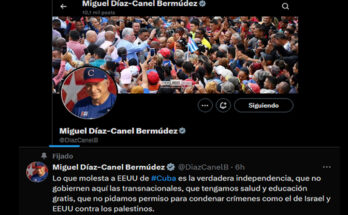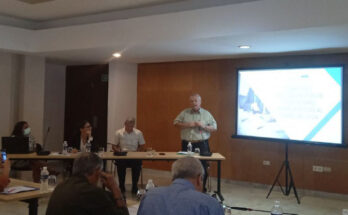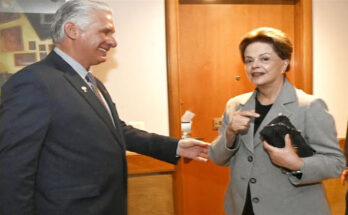The imperishable legacy of Commander in Chief Fidel Castro Ruz goes beyond a popular will or the love expressed by his millions of followers around the world.
The essence of this legacy comes from the exceptional conditions and virtues of the eternal Chief of the Cuban Revolution: his unwavering attitude in the face of threats, difficulties and the enemies of the Revolution, from his unequivocal outlook and foresight, his moral authority, his comprehensive political training, his persistence, constancy, optimism and resolute confidence in himself and his people, from his ability to turn defeats into victories, from his revolutionary way of interpreting Marti’s thought and Marxism-Leninism, from his profound understanding that ¨Cuba is humanity¨.
Fidel promised to fight tirelessly against imperialism and the abuses it causes to humanity, with which he was obsessively consistent until the last days of his physical existence. He showed invariable firmness in his principles to defend his people before the onslaught of enemies and before every danger of social or natural order.
He traveled to the future to predict the fall of socialism in the former Soviet Union and in the socialist camp and at the same time he called on the Cuban people to be strong and resist in case of the collapse that was foreseen and that finally occurred. He also warned imperialism against deluding itself in the face of such a disaster and made it very clear that (…) even in those circumstances Cuba and the Cuban Revolution will continue to fight and will continue to resist!”.
Ernesto Che Guevara, his friend and companion from the Granma, the Sierra Maestra until his death in Bolivia, exalted Fidel’s exceptional qualities as a leader and the reason for his relevance as a revolutionary statesman and man of extraordinary dimensions.
“…if we are here today and the Cuban Revolution is here, it is simply because Fidel entered the Moncada first, because he got off the Granma first, because he was first in the Sierra, because he went to Playa Girón in a tank, because when there was a flood he went there and there was even a fight because they would not let him in […], because he has, like nobody else in Cuba, the quality of having all the possible moral authorities to ask for any sacrifice in the name of the Revolution”.
Gabriel García Márquez, the Colombian writer Nobel Prize for Literature, his close friend, highlighted Fidel’s power of seduction, his devotion to words, and stated that ¨the greatest stimulus in his life is the thrill of risk.
Fidel’s charisma
Fidel had a cosmopolitan vision that attracted friends and adversaries alike, as well as personalities of different kinds and ideologies. For Argentine soccer player Diego Armando Maradona, Fidel “…is a seducer and uses everything to envelop you. They say he started with twelve men and three rifles in the Sierra Maestra and now I realize why he won: he has an iron conviction (…) a personality impossible to forget”.
Meanwhile, one of Fidel’s good friends and admirers, the Brazilian Frei Betto, writer of the book Fidel and Religion, where for the first time a leader of a communist revolution delved into such topics, affirmed: “Fidel Castro is a man privileged by his Christian formation, his Marxist option and the assimilation of Marti’s preaching. (…) In spite of all his genius, of all the history he embodies, he manages to make us feel his brother (…) he is a man who puts his life in function of utopia, he is a man who will never in this life find his plenitude because Fidel believes that heaven on earth is possible”.
His overflowing optimism led him to see the future victory of the struggle he was leading. In 1956, days before leaving Mexico on the expedition to Cuba, he said: “We will be free or martyrs”, at the same time he had prophesied that if he left, he would arrive, and if he arrived, he would triumph, which he achieved in a little more than two years, with his triumphal entry into Havana on January 8, 1959.
Fidel’s legacy is and will always remain a guide for life and liberty, for dignity and sovereignty, for solidarity and altruism.




